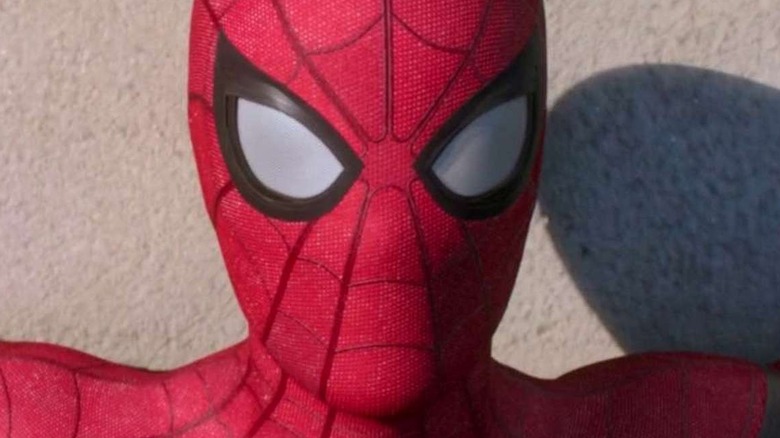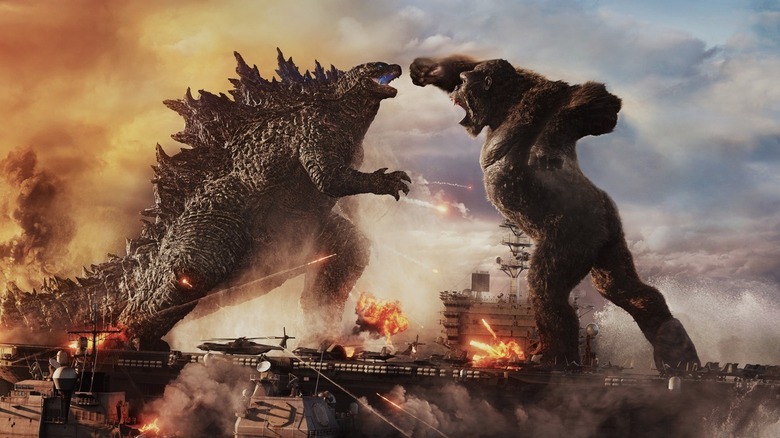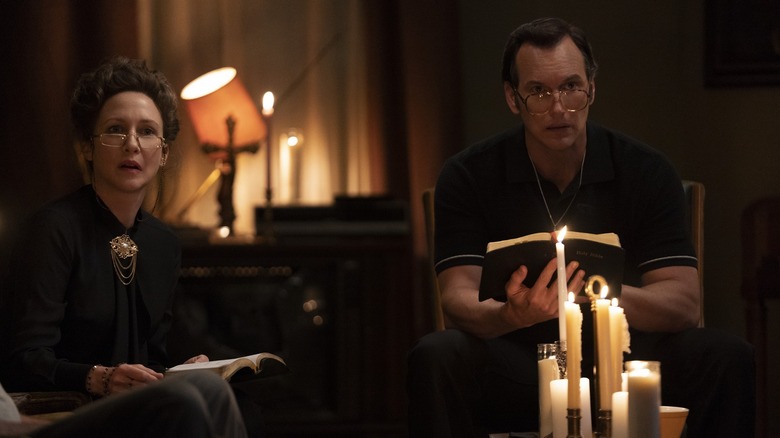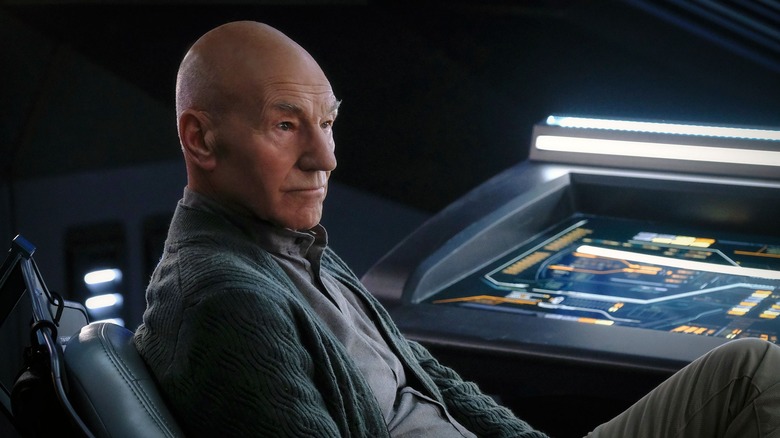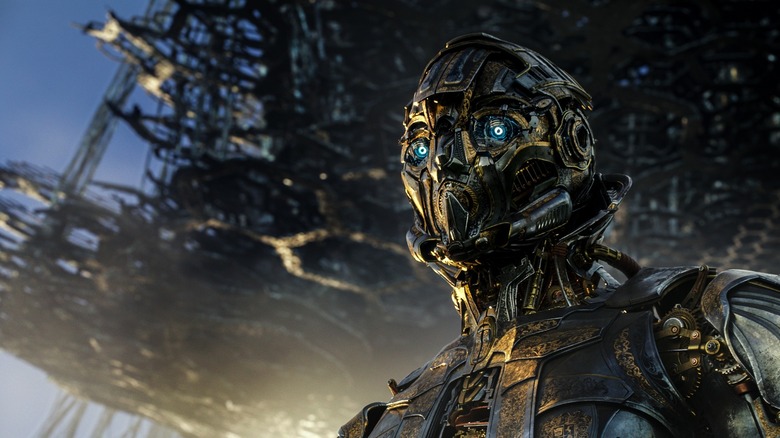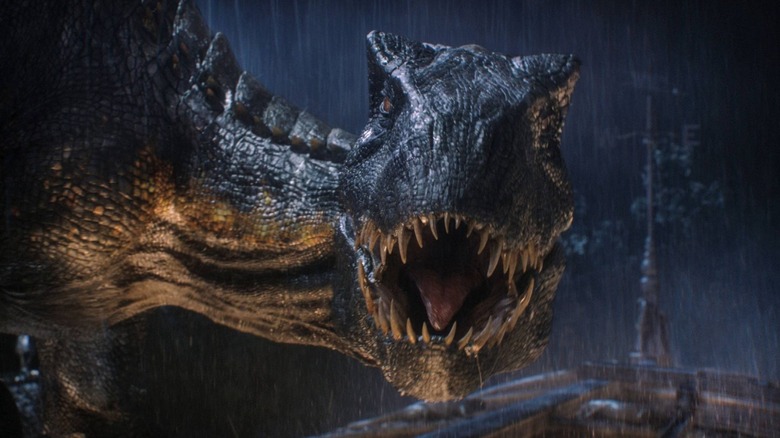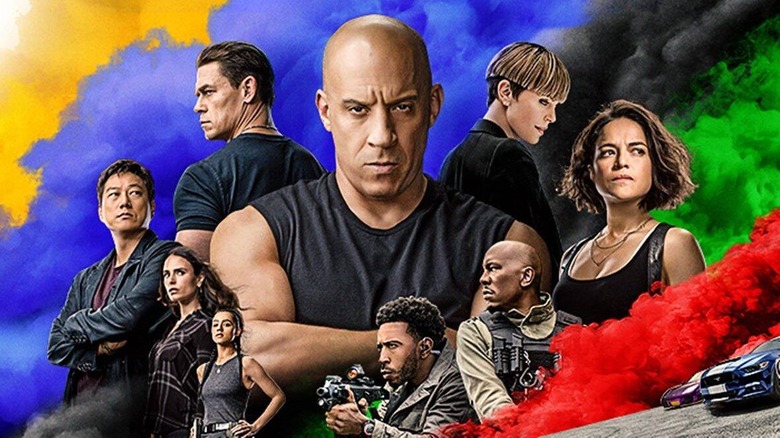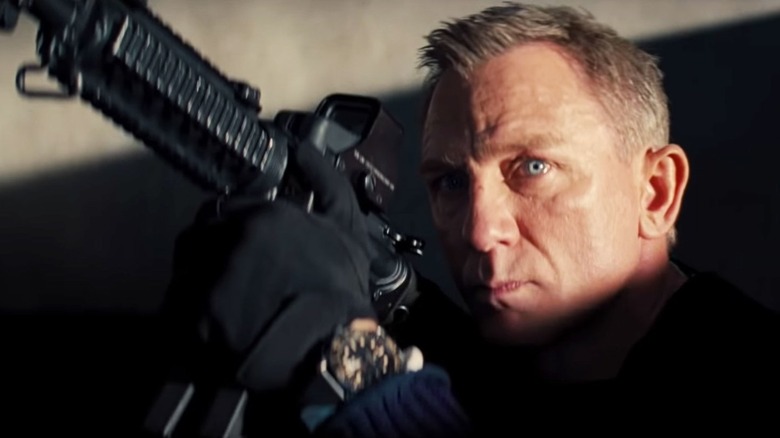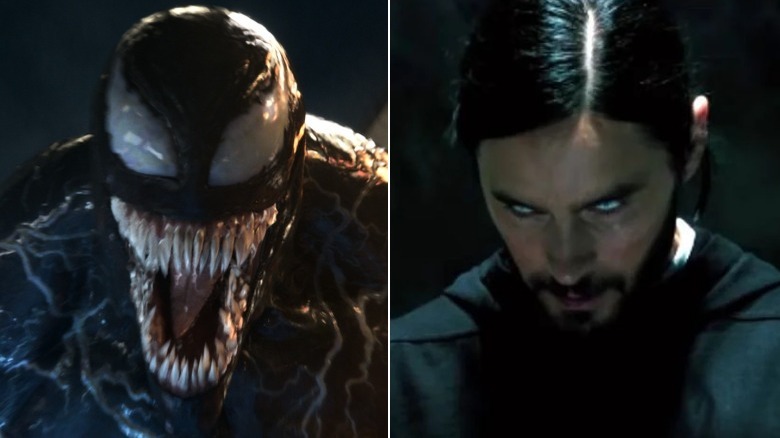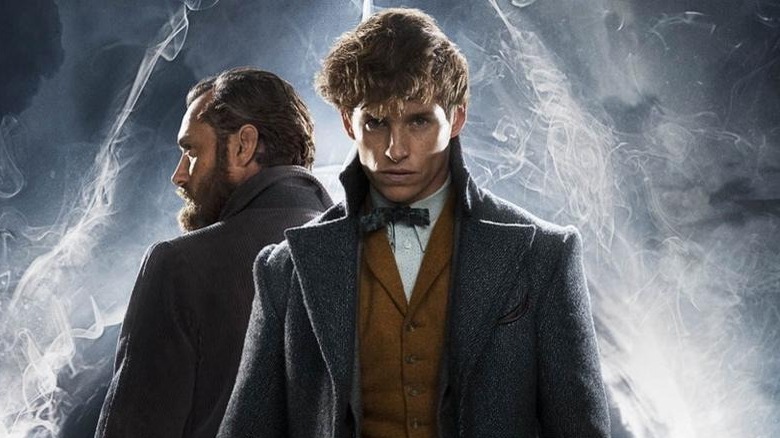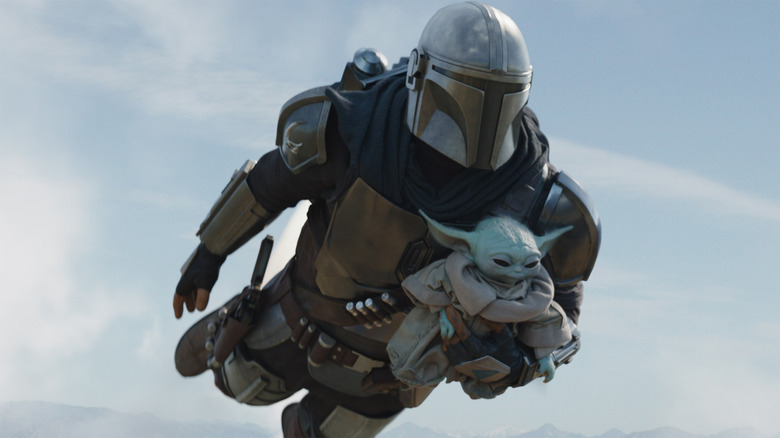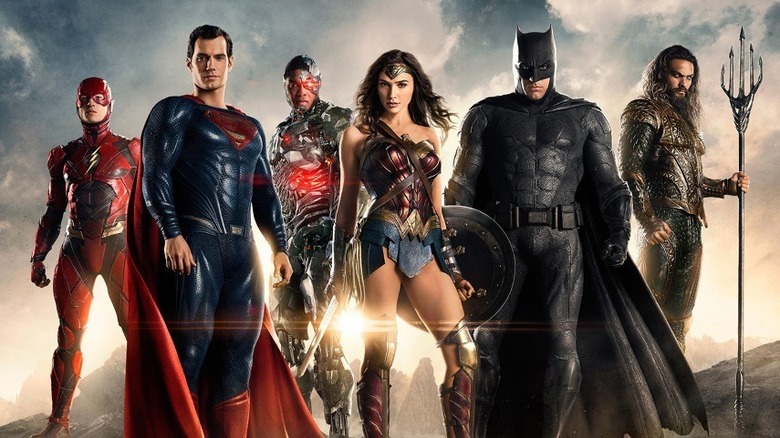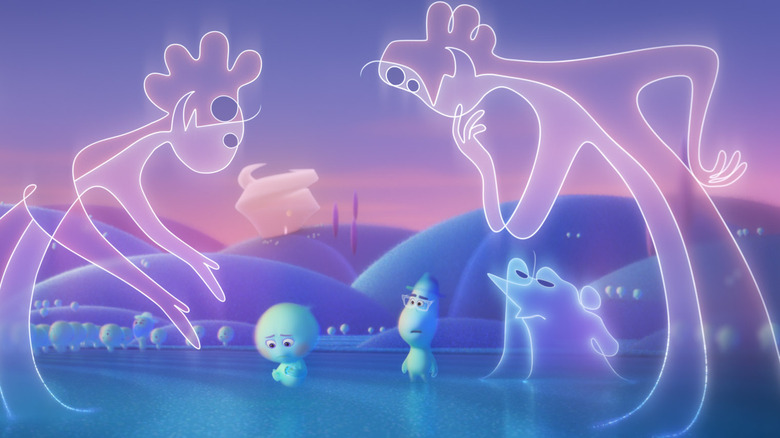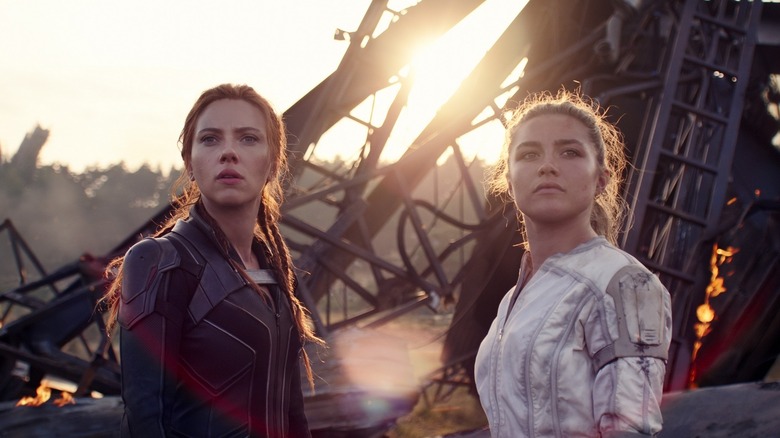Blockbuster Report Card: Where Your Favorite Franchises Stand
Summer movie season is in full swing! Well ... sort of. As the world continues to emerge from the COVID-19 pandemic, theaters have gradually reopened as well. While the summer of 2020 brought moviegoing to a complete standstill, with screens barely open anywhere and every major release delayed over and over until they were all pretty much booted into 2021, this year has brought a modicum of normalcy back to the theatrical experience, with the protocols and rituals of going to the movies evolving even as we write this.
While some of pop culture's biggest franchises have been poking their heads cautiously out of the ground in 2021 — like the Monsterverse, "Fast and Furious" and the biggest of them all, the Marvel Cinematic Universe — others are regrouping, rebooting or prepping coronavirus-halted productions to go in front of cameras at last. Still others are just waiting for the right release date for completed films.
With all that in mind, we thought we'd do a temperature check on a number of your favorite movie franchises and see where they all land right now in terms of box office, critical and/or fan appreciation, and creative direction. Some are in good health, some are branching off in surprising new directions, and others may need an intensive overhaul. With more of us heading back to the movies at last, even as the way we view them is changing rapidly, let's look at where some of our biggest movie franchises stand.
The Monsterverse
If you had asked us a year ago what kind of shape the Monsterverse — the universe of giant, mostly Japan-originated beasts and the secret organizations who track them — was in, we would have probably avoided answering while heaving a sad, long sigh. After all, "Godzilla: King of the Monsters" had stiffed pretty badly in 2019, and even predecessors "Godzilla" (2014) and "Kong: Skull Island" (2017), while posting decent numbers, didn't really end up being out-and-out blockbusters.
Flash forward to 2021, and "Godzilla vs. Kong," released in March, managed to make more than $100 million at the North American box office and nearly $447 million worldwide even with the globe still emerging from the pandemic — and with the movie available for free to HBO Max subscribers. The film benefited from being the kind of massive, big-screen spectacle made for theaters, and also from the marquee value of being the mother of all monster prize fights.
"Godzilla vs. Kong" was, for a fairly brief window of time, the highest-grossing release of the pandemic era, and certainly seemed to pump new life into the franchise. There are already rumors of a fifth film, but will anyone go to see either Kong or Godzilla on their own again or will they only show up for a rematch? That's the kaiju-sized question for Warner Bros. Pictures. (Grade: B-)
The Conjuring
With a worldwide box office take of more than $2 billion, the eight films of the "Conjuring" series have quietly comprised one of the more successful attempts to create a shared universe. Starting with "The Conjuring" in 2013, the movies have gradually built out a supernatural mythology based mainly upon the case files of alleged paranormal investigators Ed and Lorraine Warren. Some of the films have done better than others, and critics have had mixed to negative views about several of them. But the brand has generally scored with audiences hungry for old-fashioned tales of hauntings, possessions and, pardon the pun, paranormal activity, while monsters like Annabelle and the Nun have become part of pop culture.
The latest entry, "The Conjuring: The Devil Made Me Do It," didn't generate the same buzz as previous entries, with the box office stalling out in North America at around $64 million — $40 million less than 2016's "The Conjuring 2." To be fair, that's in the context of a post-pandemic world and (like all 2021 Warner Bros. releases) being available on HBO Max. "The Devil Made Me Do It" also scored far less positive reviews than the previous two "Conjurings." While all the films, including three "Annabelle" entries, "The Nun" and "The Curse of La Llorona," have been made for a reasonable price (not one has cost more than $40 million), franchise overlord James Wan and his team may need to rethink where the series goes from here. (Grade: B)
Star Trek
This pop culture touchstone is the second oldest institution on this list (we'll get to the oldest one a little later), and it has managed to keep on trekkin' for more than 50 years despite interest waxing and waning over the decades and different generations embracing different iterations of the mission. But the numbers don't lie: with 13 films generating nearly $2.7 billion at the box office, and some 797 episodes of television seemingly airing or streaming somewhere at any time (with more on the way) — plus all the related books, comics, videos, toys, conventions and other merch — "Star Trek" has remained one of the biggest media empires of its time.
The franchise has taken its hits: the early cancellation of "Star Trek: Enterprise" was one, the fizzling out of the "Next Generation" and "Kelvin Timeline" movies was another. On the other hand, the success of "Star Trek: Discovery" (its third season was its most acclaimed yet) and "Star Trek: Picard" indicate that the small screen is where the future of "Trek" looks brightest, especially with new seasons of both, plus "Star Trek: Strange New Worlds" and "Star Trek: Prodigy," also imminent. That seems logical to us: five years after "Star Trek Beyond" underperformed in theaters, there's still no sign of a fourth film with the Kelvin cast on the horizon despite the involvement of creative heavy hitters like Quentin Tarantino and Noah Hawley. (Grade: B)
Transformers/Hasbro
The "Transformers" franchise — not including 2018's well-liked spinoff "Bumblebee" — is probably the worst reviewed on this list, with an average rating of 40% on Rotten Tomatoes. But that hasn't stopped them from generating a Cybertron-sized $4.8 billion at the box office, with series peaks "Dark of the Moon" (2011) and "Age of Extinction" (2014) each going over the vaunted $1 billion mark.
Nevertheless, "Transformers" exhaustion may have taken down "The Last Knight" (2017) and "Bumblebee": the former — the last to be directed by Michael Bay — earned barely half what its predecessor did, while the latter didn't crack $500 million worldwide. Although there were initial reports of a "Bumblebee" sequel in the works, that has been redirected into a full-on reboot of the entire franchise: with director Steven Caple Jr. ("Creed II") at the helm, "Transformers: Rise of the Beasts" is set to come out on June 24, 2022.
As for other Hasbro toy properties, Paramount Pictures returns to the "G.I. Joe" corner of the canon on July 23 with "Snake Eyes," an origin story for the masked ninja warrior so popular in the "G.I. Joe" comics, toys and animated shows. But plans hatched in 2015 to create a shared cinematic universe involving the Transformers, G.I. Joe, and other Hasbro licenses like the Micronauts, M.A.S.K., and Rom never took off (via Screenrant), despite the hiring of a writers' room and even directors for "Micronauts" and "M.A.S.K." Some universes are perhaps best left unshared. (Grade: C)
Jurassic Park/World
With the exception of "Mad Max," "Star Wars" and "Indiana Jones," no other modern franchise has taken longer to resume itself on the big screen. Some 14 years passed between 2001's somewhat tepidly received "Jurassic Park III" and 2015's massively successful "Jurassic World," with absence definitely making the heart grow fonder: the latter's $208 million opening weekend dethroned former champ "The Avengers" for biggest opening frame of all time, even if it was knocked out just six months later by "Star Wars: The Force Awakens."
But here's the dirty little secret of the five "Jurassic" films to date: despite earning more than $5 billion worldwide at the box office, none of them except the classic 1993 original have really been any damn good. Even though we all love dinosaurs — who doesn't? — this is a rare blockbuster property where even critics and fans mostly agree on the quality of the product being offered.
With 2018's "Jurassic World: Fallen Kingdom" earning some $360 million less than its predecessor, that puts some pressure on 2022's "Jurassic World: Dominion" to bring the current trilogy home in spectacular fashion. For director Colin Trevorrow, that means uniting the current (Chris Pratt, Bryce Dallas Howard) and classic (Jeff Goldblum, Sam Neill, Laura Dern) casts for one big "Paleontologists assemble!" moment, plus possibly giving us a long-expected dino rampage through modern civilization. We have to admit: we're kind of excited to see that. (Grade: C)
The Fast and the Furious
Since its June 25 release in North America, "F9," the latest in the "Fast and Furious" franchise, has earned a total gross here of nearly $142 million. Add that to the international tally, and the 9th chapter in the saga has sailed easily past half a billion at the worldwide box office after almost two months (the picture opened in late May in some territories in the Middle East).
How does that stack up to the rest of the series, especially the last three or four entries, which went full blockbuster? It's not really clear. The last four movies all made between $210-$240 million in North American ticket sales — with the exception of "Furious 7," which earned $353 million. "Furious 7" was pushed by the tragic circumstances surrounding the movie (the death of Paul Walker); the grosses of the other films are more in line with expectations.
When all is said and done, "F9" will probably sit comfortably alongside the others. But what happens next? "Fast 10" and "Furious 11" will shoot back to back next year as a two-part grand finale. How many supposedly dead characters can you bring back? How much more can you strain audience belief after you've sent a Pontiac Fiero into space? Will anyone see a spinoff starring Tyrese Gibson? Despite these questions, the "Fast" family has done pretty well for a franchise that started with a little movie about street racing. (Grade: B)
James Bond
The adventures of England's most famous spy are the longest-running franchise on this list: 25 official films (plus two unofficial ones), stretching back to 1962, with a total worldwide box office of more than $7.1 billion. Even accounting for inflation due to the sheer age of the series, it's still an impressive haul for a property with roots in the 1950s and a very different mindset about geopolitics, sex, and, well, just about everything else.
That doesn't mean that Bond can't change with the times: Phoebe Waller-Bridge coming in to work on the script for "No Time to Die" already speaks to the producers' interest in keeping 007 relatively apace with pop culture. But "No Time to Die" (finally due out October 8, 2021) is a transitional 007 film for a much bigger reason as well: it's Daniel Craig's final outing as Bond, plus the first new film in the series in six years — the longest span without a Bond film since legal issues put "GoldenEye" on ice for the same length of time in the mid-1990s.
Will audiences still be interested? Will Craig's successor be able to keep the momentum going even if he's not named Tom Hardy or Idris Elba? And with Amazon buying 007 co-owner MGM, will execs there be happy with a franchise that only pops out one film every few years? Bond has faced many challenges in his long career, but the biggest yet may be ahead. (Grade: B-)
Sony Pictures Universe of Marvel Characters
This is a problematic franchise, and not just because of (let's be honest here) that awful, clunky name. The SPUMC, as it is, consisted until 2018 purely of movies starring Spider-Man and whoever was playing him at the time. But in October of that year, Sony achieved the long-held dream of producer (and former Marvel CEO) Avi Arad to make a Spider-Man movie that didn't actually feature Spider-Man. That movie was "Venom," and despite terrible reviews, Tom Hardy's over-the-top performance and the mysterious hold that the title symbiote has on a certain segment of pop culture pushed the film to nearly $854 million in global ticket sales.
This released the Kraken: Sony now has the pandemic-delayed "Venom: Let There Be Carnage" arriving on September 24, 2021, while "Morbius" comes out in early 2022 and a film starring legendary Spidey nemesis Kraven the Hunter is on tap for the following year. The one true bright spot is that a sequel to the genuinely brilliant animated flick "Spider-Man: Into the Spider-Verse" is on the way as well.
As for the current live-action Spidey played by Tom Holland, his third Marvel-produced film, "Spider-Man: No Way Home," comes out this December. We don't look forward to the day when Sony and Marvel end their Spidey partnership, although it's inevitable (unless, you know, Disney buys Sony). But since "No Way Home" is all but certain to introduce the multiverse to the MCU, anything could happen. (Grade: C+)
Harry Potter/Wizarding World
With almost $9.2 billion worldwide in the bank and counting, the "Harry Potter" franchise — aka J.K. Rowling's Wizarding World — seems on the surface to be flying happily along like a Golden Snitch. Sure, both the box office and love dropped rather drastically for 2018's "Fantastic Beasts: The Crimes of Grindelwald," and the producers have had to replace one of the series' major stars due to domestic abuse claims (among other things), and the creator of the whole shebang keeps digging herself into a deeper, wider hole with remarks that teeter on the edge of transphobia. But who's worried?
Other than the Johnny Depp and Rowling scandals — neither of which can be linked clearly to the $160 million plunge the saga took in ticket sales — the whole Wizarding thing has been humming along, with plays, amusement park attractions, and tons of assorted merch supplementing the movies and books. "Fantastic Beasts" may not grip the public's imagination as much as the story of the Boy Who Lived, but that's to be expected as well. Plus a refocused (and recast) third entry could right the wobble that the Rowling empire has experienced. After that? Well, it will probably be time in a few years to just start remaking the original Potter movies all over again. (Grade: B-)
Star Wars
What a difference a masked bounty hunter and a baby Yoda make. "The Mandalorian" was barely out of the chute at Disney+ when "Star Wars: The Rise of Skywalker" opened in December 2019 to perhaps the worst reception of any "Star Wars" product since the infamous "Holiday Special." It still (barely) made more than $1 billion worldwide, but the movie's awkward attempt to wrap up 40 years of storytelling while super-serving distraught fanboys pleased no one.
Meanwhile, "The Mandalorian" chugged along under the supervision of Jon Favreau and Dave Filoni, becoming the standard bearer for what "Star Wars" could be when made by people with true passion and a coherent vision. With a third season on the way, new animated series "The Bad Batch" getting a warm reception, and future live-action shows like "The Book of Boba Fett," "Andor," and "Rangers of the New Republic" all in the pipeline, "Star Wars" may — like its rival "Star Trek" — find that its best way forward is through TV and streaming.
But "Star Wars" started on the big screen, and despite the sequel trilogy ultimately disappointing on many levels, the saga will make a comeback in theaters eventually. Whether it's via director Patty Jenkins' "Rogue Squadron" film, Marvel head Kevin Feige's mystery project, or that new trilogy that filmmaker Rian Johnson claims is still in the works remains to be seen. But we're hopeful that the words "A long time ago in a galaxy far, far away..." will flash across your local multiplex screen again someday. (Grade: B)
DC Extended Universe
Like the Sony Marvel "universe," the DC franchise is a bit problematic: it goes back some 43 years if you count the late Richard Donner's original "Superman" — which we're going to do since that movie set the template for the modern superhero epic (and because we're making the rules around here). Taken as a whole, DC (and parent company Warner Bros.) has had a healthy run of it, with more than $10.3 billion in the bank across those four decades and a lot of creative highs as well: "Superman," "Superman II," Tim Burton's "Batman," the "Dark Knight" trilogy, and more recent adventures like "Wonder Woman" and "Shazam" have all shined. Even some genuinely bad movies like the first "Suicide Squad" have raked in the bucks, although "Batman v Superman: Dawn of Justice," "Wonder Woman 1984," and "Justice League" have been polarizing to say the least and tepid in their box office or streaming returns.
DC has been more consistent on TV and home video. The CW's Arrowverse took a while to find its footing, but shows like "Arrow," "The Flash," "Legends of Tomorrow," and "Supergirl" have all found success. And the DC Animated Universe continues to flourish, its interconnected films much closer in style to the MCU than the big-screen offerings. As for those, DC will introduce its own multiverse with the highly anticipated "The Flash" movie, although other upcoming epics like "The Suicide Squad," "Shazam 2," "Aquaman 2," and "The Batman" are likely to keep their standalone status. (Grade: B-)
Pixar
Pixar is the only entry here that's an actual company and not a film series per se. That's because the Pixar brand is, in its own way, a great, unified canon of films — you can tell when you're watching a Pixar film, and while many of the movies are different from each other, most of them share a visual aesthetic and tonal mood that binds them all together as special pieces of art.
There are also mini-franchises underneath the Pixar umbrella — the "Toy Story" four-pack is the most successful and best known, although "Monsters Inc." and even "Cars" fit the bill. Speaking of the latter, Pixar is certainly not perfect; the "Cars" trilogy are probably not anyone's favorites, and less endearing efforts like "The Good Dinosaur" and "Onward" occasionally slip out the door.
But for all the hand-wringing articles that ask what Pixar's problem is, don't forget that the studio produced masterpieces like "Inside Out" as recently as six years ago, and turned out another one last year in "Soul" to go along with all the classics — "Toy Story," "Finding Nemo," "WALL-E," "The Incredibles" — that have brought in more than $14.6 billion over 26 years. Yes, the pandemic has seemingly devalued Pixar somewhat, with "Soul" and "Luca" being shoved onto Disney+ without even the requirement of premium access, but this is still the home of some of the greatest animated films ever made — and we're confident there's more to come. (Grade: B+)
Marvel Cinematic Universe
"Black Widow," the first MCU movie in nearly two years, earned $80 million in its first weekend at the domestic box office, with a global take of $158 million. That's the biggest domestic opening since the COVID pandemic began — but also add another $60 million from viewers who ordered the film on Disney+ for $30 a pop.
The initial success of "Black Widow," coupled with the launch of "WandaVision," "The Falcon and the Winter Soldier," and "Loki" on the Disney+ platform, seems to indicate that the most successful franchise of all time (with $22.7 billion in worldwide box office since 2008) has a bright future ahead of it even with some of its biggest heroes retired or deceased.
"There was an idea..." intoned a man named Nick Fury once, and he could have been talking about the MCU itself. The vision of Marvel head Kevin Feige and the entire MCU creative team — a vast, interwoven series of connecting films — was unheard of in the movie business, and yet they pulled it off with nary a wrong move (okay, we'll let "Thor: The Dark World" slide). Those last two "Avengers" movies alone became a true pop culture event.
The question now is: can the MCU repeat or extend that success? Will more new Disney+ shows, fresh characters, and the likely introduction of the Fantastic Four and the X-Men keep audiences coming back and build to another massive all-hands event in three or four years? We suspect that even Doctor Strange would find the odds to be pretty darn good. (Grade: A-)
